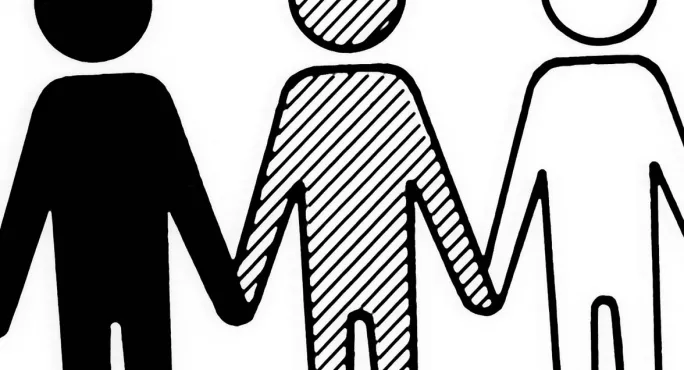- Home
- Detention for kissing teeth ‘risks racial harassment’
Detention for kissing teeth ‘risks racial harassment’

A strict set of behaviour guidelines endorsed by a government adviser could lead to black pupils being unfairly targeted, experts are warning.
The discipline guide for Royal Docks Academy in Newham, East London, which was posted on social media this week, has been criticised for being overly harsh.
However, it was supported by government behaviour tsar Tom Bennett and others on Twitter.
Related: Teachers show racial bias against black boys when disciplining children, Yale study finds
News: ‘We must end the unconscious bias in teaching’
Quick read: Covert racism lives on in schools, says academic
Some, however, have said the policy - which gives students consequences of 30-minute, one-hour or two-hour detentions depending on what they have done - is racially biased, as it awards the harshest penalty of two hours for pupils “kissing teeth”, equating this with bullying, truancy and theft.
“Kissing teeth” - when people suck air through the teeth behind pursed lips as an expression of annoyance - is of Caribbean origin. So some experts have suggested this policy would disproportionately affect black pupils, whereas “tutting”, which is a similar way of venting irritation, does not appear on the policy.
Pupils who are dishonest, roll their eyes or make a rude hand gesture would receive only one hour’s detention.
David Gillborn, professor of critical race studies at University of Birmingham’s School of Education, told Tes that in the worst-case scenario, the policy could lead to “targeted harassment of black students”.
He said: “The whole idea of kissing teeth is the classic example of a little knowledge being a bad thing. A lot of white teachers think they know what that means and read into it a whole lot of things that aren’t there from the student’s perspective.”
He added: “I’ve been in schools where white teachers have seen that behaviour as the worst possible insult a black student could give them, and reacted in that way, but it can mean a whole range of things for students, and very often they are not kissing their teeth in an insulting way.
“When a white student tuts, is that going to be seen in the same way? When a black student tuts, will that be seen as kissing their teeth?
“I don’t think [kissing teeth] is the kind of thing that’s subject to easy interpretation. When you imagine which students are going to be punished for this, it is almost certainly going to lead to disproportionality in which students are targeted for it.
“It’s a category of misdemeanour that’s massively open to unconscious bias at best, at worst an easy way to single black students out for punishment.”
Professor Gillborn said the policy makes explicit “something we know has been going on for a very long time”.
He said while there were decades of research into the disproportionate punishment of black pupils, it was “surprising that in 2019 they would not be more sophisticated about these kinds of policies”.
Some teachers on Twitter defended the policy. One teacher said that if her own school enforced rules like this, she would enjoy the job more.
I can tell that many of you good folk don’t actually teach. I have six back to back difficult classes tomorrow and if I was going to work in a school that actually enforced this I would probably get a full eight hours sleep tonight and not wake up at 5am filled with anxiety.
— Julia Thee Junglist Historian (@Miss_Toppin) October 13, 2019
And others said it was unfair to judge schools on their codes of conduct without knowing the full policy.
Without knowing the full context I think it’s unfair to judge. It seems extreme, but maybe the school is in an extreme environment, where pupils need to learn boundaries which might not be clear at home. (Altho personally some of the consequences seem disjointed with the offence)
— Katie Kean (@lorek_katie) October 13, 2019
Children’s author Malorie Blackman tweeted about the policy, stating: “Funny how kissing your teeth gets 2 hours of detention and tutting doesn’t even make the list.”
I rank kissing teeth on a par with tutting. Funny how kissing your teeth gets 2 hours of detention and tutting doesn't even make the list. 🤔 https://t.co/LQvr4F8scI
— Auntie Malorie (@malorieblackman) October 15, 2019
But Twitter user @MrBlachford, a secondary maths teacher, said there was “absolutely nothing controversial on this list [of misdemeanours and associated punishments]”.
Absolutely nothing controversial on this list.
— Educator Supe (@ShakinthatChalk) October 14, 2019
Nothing pic.twitter.com/vQ95tZ8Fuk
And Tom Bennett, the government behaviour tsar, said the policy was “pretty standard” and “fine, as part of a range of strategies that includes normative messaging, routines, targeted support”.
This is pretty standard for many schools. And it's fine, as *part* of a range of strategies, that includes normative messaging, routines, targeted support etc. Or, put it another way, no community can endure having no consequences for ignoring its conventions. https://t.co/aUY9ehazCu
— Tom Bennett OBE (@tombennett71) October 13, 2019
A spokesperson for the BMAT academy trust, which runs Royal Docks Academy, said: “The photo shared is of one page of guidelines in a pupil planner, which sits alongside other general information, guidance and resources for pupils.
“It is not a page from the academy or trust’s behaviour policy.
“We are aware of a wide range of comments online both criticising and supporting the inclusion of the guidelines and will not be making further comment.”
Keep reading for just £1 per month
You've reached your limit of free articles this month. Subscribe for £1 per month for three months and get:
- Unlimited access to all Tes magazine content
- Exclusive subscriber-only stories
- Award-winning email newsletters



